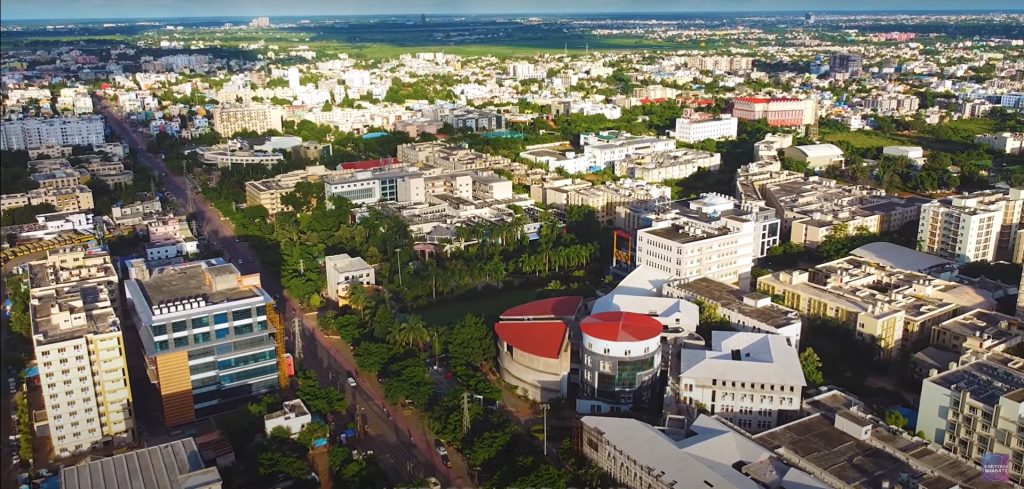Arindam Ganguly, OP
Bhubaneswar: On the occasion of World Habitat Day 2025 today, observed under the theme ‘Urban Crisis Response’, urban experts and environmentalists called for a transformational shift in Bhubaneswar’s urban planning approach to meet the growing challenges of urbanisation, climate change, and migration.
“Bhubaneswar must break free from car culture”
Piyush Ranjan Rout, an urban planner and city expert, emphasised the urgent need for the Capital to move beyond its car-centric culture and adopt people-centric urbanism. “The world is moving away from car-centric development towards urban planning which prioritises people and the environment. Bhubaneswar must follow it,” said Rout.
Also Read: Two men from Haryana arrested in Bhubaneswar for impersonating senior govt officials
“Today, knowingly or unknowingly, the city faces rising congestion, pollution, and climate-related challenges. New urbanism, which emphasises pedestrians, cyclists, community spaces, and public transport, offers a feasible solution.”
Rout envisions a city where every essential services starting from healthcare to groceries, is accessible within a 5 to 10-minute walk, eliminating the need for vehicles and reducing pollution, noise, and accidents. “Imagine vibrant public spaces where people can walk, shop, play, and socialise without the dangers of traffic. That’s the Bhubaneswar I dream of—a city that supports a higher quality of life through better planning,” he added.
He also stressed that urbanisation must not be seen merely as a technical or economic endeavour, but a human-centred one—especially as Odisha pursues its Quad Cities Corridor Project (Bhubaneswar–Cuttack–Puri–Paradip), aligned with the state’s ambitious goal of becoming a $500 billion economy by 2036 and $1.5 trillion by 2047.
“Sustainable, inclusive & livable cities are the need of the hour”
Echoing the theme of this year’s Habitat Day, environmental expert JK Panigrahi said, “The theme ‘Urban Crisis Response’ is a timely reminder that cities must strive for sustainability, equality and resilience. Bhubaneswar’s original design was an architectural masterpiece, but its expansion has unfortunately led to the loss of natural heritage and biodiversity due to unsustainable practices.”
Panigrahi highlighted that modern urban development should not compromise on the environment or inclusivity. “We need to reimagine Bhubaneswar with a focus on green spaces, clean water, affordable housing, and reduced pollution. Let’s build cities that nurture both people and the planet,” he added.
“Urban housing crisis in Odisha: Affordability major hurdle”
Gautam Kumar Agrawal, an architect and infrastructure consultant, emphasised that the urban habitat crisis must be taken seriously by the state government to effectively address the challenges. One of the major issues, he noted, is the real estate sector. “According to a study, Bhubaneswar has emerged as one of India’s least affordable capital cities for housing—even the top 5 per cent of urban families in Odisha would need over 50 years of savings to afford a mid-sized home,” he said.
Managing migration: A key urban challenge
With Bhubaneswar set for major urban expansion, Saroj Barik, an activist working for the welfare and protection of migrant workers, emphasised the crucial need to address the influx of migrant workers. “Rapid urban growth will attract thousands of rural migrants seeking employment. But without proper planning, this could lead to overcrowding in slums and new informal settlements,” he said.
Barik urged the Bhubaneswar Development Authority (BDA) to take a proactive role in ensuring habitat rights for migrant workers through well-planned worker colonies, affordable rental housing, and access to basic amenities.
“Migrant workers are the backbone of city-building. Respecting their dignity through inclusive housing policies will be key to a truly sustainable Bhubaneswar,” he added.
As Bhubaneswar positions itself as a smart city of the future, experts agree that addressing its urban crises with bold, human-centred policies is no longer optional—it’s essential.
On this World Habitat Day 2025, the message is clear: urban development must be reimagined not just for economic growth, but for people, the environment, and a more inclusive tomorrow.
